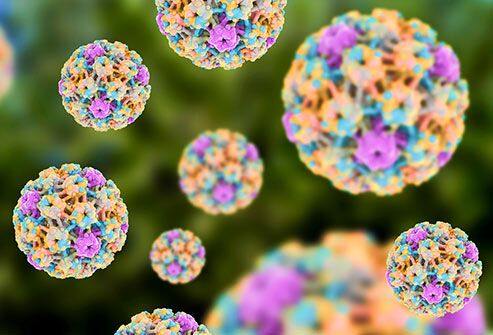
HPV (human papillomavirus) is an extremely common sexually transmitted infection. It’s so common, in fact, that most sexually active men and women will contract the virus at some point during their lifetime. The chances are high that you or someone you know has HPV.
There are over 100 strains of HPV that can affect humans, with 14 of them linked to causing cervical cancer (1). But what exactly is HPV and what kind of impact can it have on your health? And most importantly, what can you do to support your body naturally?
HPV Strains
There are over 100 strains of HPV, but not all have the same impact on our health. High-risk strains are known to cause cancer, while low-risk strains typically cause genital warts or no symptoms at all. HPV strain types 16 and 18 cause 66% of cancers of the cervix and pre-cancerous cervical lesions. In addition, some strains may cause cancer of the anus, vulva, vagina, mouth, or throat.
Fighting the HPV Virus Naturally
Did you know that by strengthening your immune system, you can help your body fight HPV?
By making some healthy diet and lifestyle changes, you can help your immune system function at its best so it has a better chance of suppressing the virus. The following are some of the top tips to help you get started.
Stop Smoking
You know smoking is bad for your health, but if you need another reason to stop, do it for your cervix. Studies have shown that smoking increases your risk of developing an HPV infection that advances to cervical precancer and cancer. Even if your body does manage to suppress the virus, your chances of getting a subsequent infection are increased if you smoke (2).
Nourish Your Body
Nourishing your body with nutrient-dense whole plant foods, such as fruits, vegetables, legumes, nuts, and seeds is fundamental to building a healthy immune system. Your immune system is your first line of defense against pathogenic invaders like HPV, so making it as strong as possible can improve your chances of suppressing the virus.
Eat plenty of leafy greens (spinach, kale, etc.) and cruciferous vegetables (broccoli, cauliflower, Brussels sprouts, etc.). Include fruits and veggies in a wide range of colors in your daily diet to supply your body with immune-strengthening vitamins, minerals, and phytonutrients.
Take Quality Immune Supplements
No matter how perfect your food is, diet alone may not be enough to maintain a robust immune function. Most people are deficient in some micronutrients, which is a growing concern as a poor nutritional status predisposes to certain infections, like HPV (3). Taking the right kind of supplements can boost your immune system to help fight off invaders.
AHCC is a cultured extract of several species of medicinal mush-room mycelia (roots). It is one of the world’s most studied immune supplements. Studies indicate that it helps provide long-term suppression of HPV infections. Taking 3 grams of AHCC daily seems to be the optimum dose (3). Treatment with AHCC makes the virus dormant in the body. To achieve continued suppression of the human papillomavirus, it is important to take the supplement indefinitely.
Folate and beta carotene help support the immune system and encourage healthy cells (4) (5). Antioxidants such as green tea extract, vitamin C, and vitamin E are especially beneficial. Green tea is recognized globally for its healing properties, and its ability to inhibit the growth of cancer cells.
Although HPV can have a severe impact on your health, there are many things you can do to support your body in fighting off the infection. Creating a healthy lifestyle, eating nutritious foods, and taking quality supplements that boost your immune system are all vital parts of your healing journey.
Sources
- Human papillomavirus (HPV) and cervical cancer: World Health Organization, 2019.
- Smoking and subsequent human papillomavirus infection: a mediation analysis: National Institutes of Health, 2017.
- Mushroom extract, AHCC, helpful in treating HPV: ScienceDaily, 2014.
- Oral folic acid supplementation for cervical dysplasia: a clinical intervention trial: National Institutes of Health, 1992.
- Content of beta-carotene in blood serum of human papillomavirus infected women with cervical dysplasias: National Institutes of Health, 1996.
- Sexually transmitted infections among US women and men: prevalence and incidence estimates, 2008: National Institutes of Health, 2013.
- Natural history of genital warts: analysis of the placebo arm of 2 randomized phase III trials of a quadrivalent human papillomavirus (types 6, 11, 16, and 18) vaccine: National Institutes of Health, 2009.
- US assessment of HPV types in cancers: implications for current and 9-valent HPV vaccines: National Institutes of Health, 2015.
- Sexually Transmitted Disease Surveillance 2017: Other STDs: Centers for Disease Control and Prevention, 2018.
- Human Papillomavirus (HPV): Resource Overview: American College of Obstetricians and Gynecologists.
- Cervical Cancer Screening: American College of Obstetricians and Gynecologists, 2017.
- Oral Contraceptives and Cancer Risk: National Cancer Institute, 2018.








